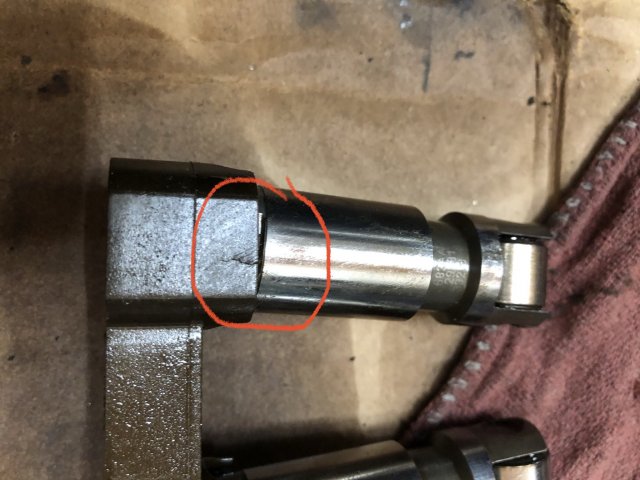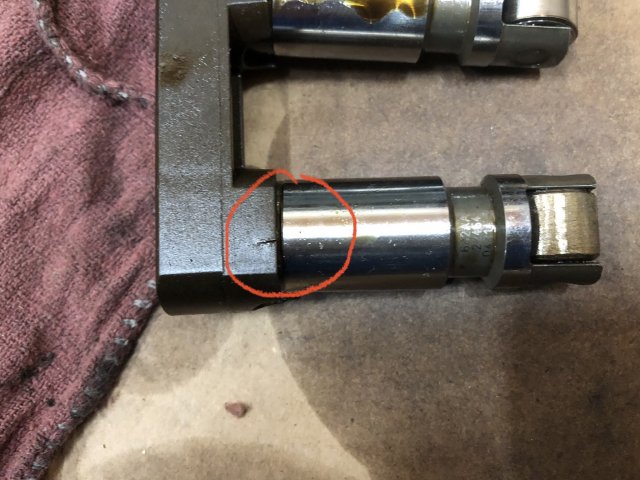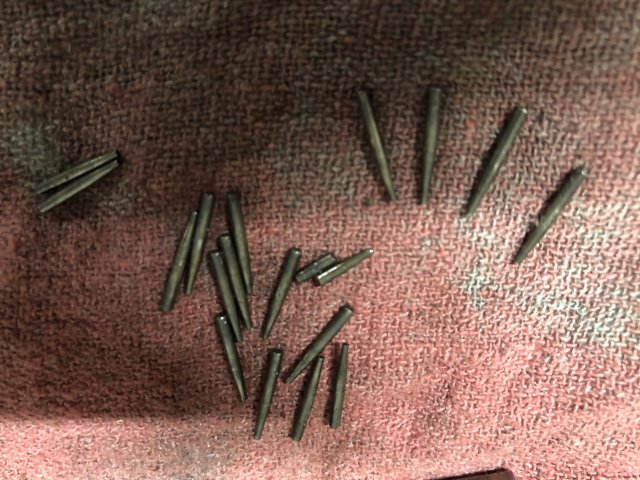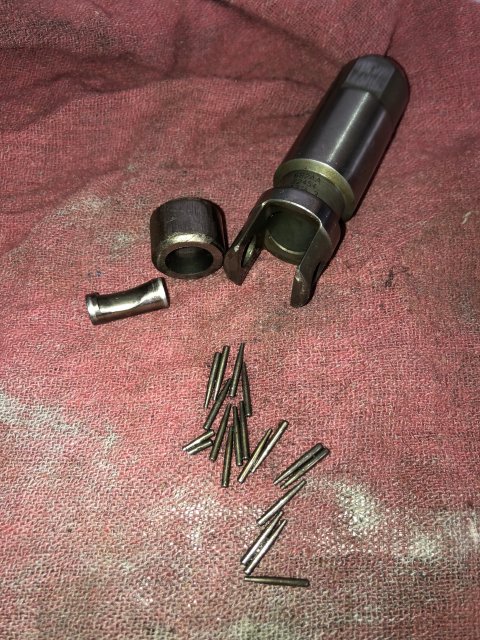-
Sign Up! To view all forums and unlock additional cool features
Welcome to the #1 Dodge, Jeep and RAM Forum dedicated to FCA owners and enthusiasts. Register for an account, it's free and it's easy, so don't hesitate to join the SRT Forum today!
The dreaded lifter tick...
- Thread starter 72 440 Barracuda
- Start date
Thread Starter
#42
- Member ID
- #1075
- Messages
- 1,018
- Reactions
- 5,274
- Likes
- 212
- City
- Graham
- State
- WA
- Country
- United States
- Vehicle
- 2015 Challenger Hellcat
Thread Starter
#42
Updated video today on this issue:
Looking at the basic design of the motor I see a lot of similarities to Chevy's LS motor (the general layout crank oil pump, lifter tray, and MDS (AFM for Chevy's)), which got me looking at whether the Chevy has lifter failure issues (it does - to some degree) which appear to have questions relative to the lifter tray design - so I went back to inspect my failure and this is what I found:


I noticed the lifter was very loose in the lifter tray (the lifter would fall out and the tray could not hold the lifter). The lifter tray was cracked on both upper and lower sides - (ref the circled areas in the pics)
So, if your into your motor (pulling the heads for any reason) I would recommend replacing the lifter trays as they will wear and may contribute to the failure I had - not sure of the cause and effect relationship of the tray, but I know my lifter rotated in the tray - causing more damage to the cam...
The replacement (Hellcat lifter trays) seemed better, but I think I would rather have a lifter tie bar like you find in most aftermarket roller lifter pairs.
-
1
- Show All
Thread Starter
#43
- Member ID
- #1075
- Messages
- 1,018
- Reactions
- 5,274
- Likes
- 212
- City
- Graham
- State
- WA
- Country
- United States
- Vehicle
- 2015 Challenger Hellcat
Thread Starter
#43
A little bit of a follow-up on the Lifter failure. The motor is back together and running again and the motor seems to have a little more power with the MDS disabled. Everything went back together good with the exception of some minor issues with the MDS disable - the PCM had to be sent to Diablo when it locked up while trying to load the tune.
I also disassembled the lifter that failed - some interesting wear was found:


The pin holding the roller and bearings had significant wear and the roller bearings were actually tapered...
I also disassembled the lifter that failed - some interesting wear was found:


The pin holding the roller and bearings had significant wear and the roller bearings were actually tapered...
-
3
-
1
-
1
-
1
- Show All
